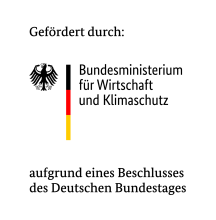Green hydrogen plays a key role in the decarbonisation of energy-intensive industries. Together with partners from the application sector, a research project at TU Bergakademie Freiberg is now testing a new type of technology for the production of hydrogen in solid oxide electrolysis cells.

Researchers at the TUBAF-Institute of Nonferrous Metallurgy and High-Purity Materials are looking at various sustainability aspects of the electrolytic cells under investigation and examining options for recycling and reusing the components. They are also investigating the life cycle assessment of the electrolysis cells over their entire life cycle.
Sub-project leader Prof. Alexandros Charitos: "In this part of the project, we are already looking at a long-term perspective on how we can minimise the environmental impact of the future waste stream generated during the production and consumption of hydrogen. The focus of our research is not only on the development of the recycling strategy for the electrolysis cells, the so-called solid oxide electrolysis cell stacks (SOEC stack), but also on the creation of a simulation-based life cycle assessment for the electrolysis materials used (HTC module). This will provide the project partners with a comprehensive overview of all the raw materials and mass flows required in the system. The methodology used will make it possible to recycle the materials so that they can be reused in new stacks."
The technology will be validated under real operating conditions over the next four years at the test facilities of electrolysis cell manufacturer Sunfire GmbH and steel producer Salzgitter Flachstahl GmbH. The plant is expected to produce 16.5 kilograms of hydrogen per hour in future.
The GrInHy3.0 research project is being funded by the German Federal Ministry for Economic Affairs and Climate Protection.

The GrInHy3.0 research project is funded by the Federal Ministry for Economic Affairs and Climate Protection.